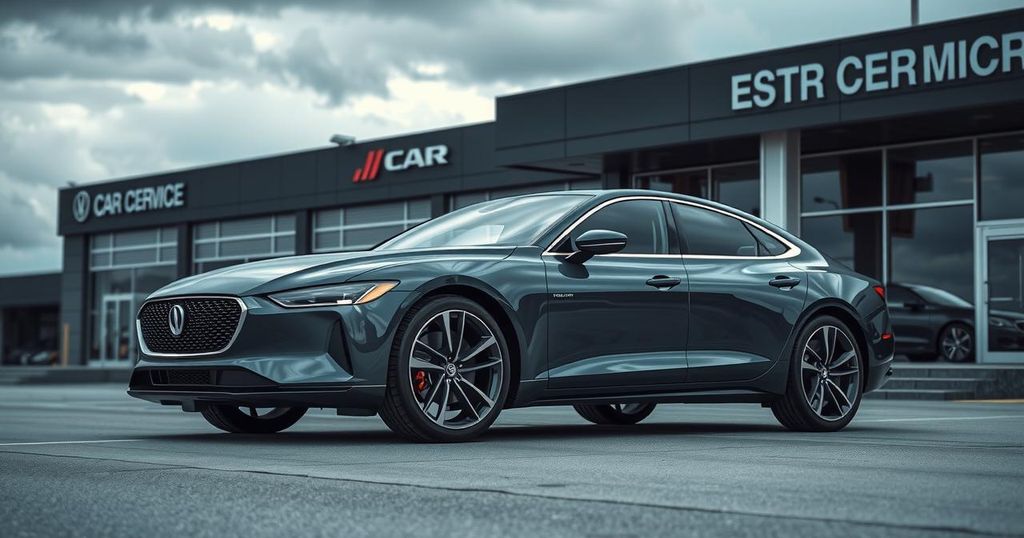BMW Anticipates Decline in Car Profitability Amid Trade Tensions and Market Fluctuations
BMW AG’s carmaking profits are expected to fall below long-term targets this year due to trade tensions and decreased sales in China. Projected margins are between 5% and 7%, with shares dropping more than 20% over the past year. The company is introducing new electric vehicles to enhance market presence while contemplating shifts in manufacturing operations due to tariffs. Analysts express skepticism about growth assumptions amid continued challenges.
BMW AG anticipates its carmaking profits to drop below long-term targets this year, primarily due to escalating trade tensions between the United States and Europe alongside faltering sales in China. The auto manufacturer projects an operating margin of 5% to 7% in 2024, down from 6.3% last year, marking a significant shortfall from its goal of maintaining margins above 8%. As a consequence, BMW shares have seen a decline of up to 4.5% recently, with an overall drop exceeding 20% over the past year.
Significant competition in China from local electric-vehicle manufacturers, particularly BYD Co., is a major concern for BMW, which faces a challenging landscape. Additionally, tariffs imposed in the U.S. and Europe are expected to cost the company approximately €1 billion this year, as noted by Chief Executive Officer Oliver Zipse during an interview. BMW is thus seeking to improve its market position, notably through the upcoming launch of its Neue Klasse line of electric vehicles later this year, aiming to release 40 updated vehicles across various drivetrains by 2027.
Zipse expressed confidence in BMW’s future, stating, “We have growth ambitions because we have strong products,” and emphasized a positive outlook for 2025 despite ongoing political challenges. Current U.S. tariffs are impacting production in San Luis Potosi, Mexico, as BMW struggles to meet local content requirements despite an exemption from these tariffs under the USMCA trade agreement. To address this issue, the company is exploring increased manufacturing capabilities in North America.
BMW’s overall net profit declined roughly 37% in 2024 to €7.68 billion ($8.3 billion), primarily due to challenges such as a recall related to braking systems provided by Continental AG. Global car sales fell by 4% last year, with China driving significant declines, as BMW reported a 13.4% drop in deliveries within the region. In contrast, both Mercedes-Benz Group AG and Porsche AG also experienced declines in their respective sales in China.
Looking toward the future, BMW remains cautiously optimistic about modest growth in car sales this year, buoyed by stabilizing inflation and mild interest rate reductions. However, analysts, including Citi’s Harald Hendrikse, have raised concerns regarding BMW’s assumptions about growth in Europe and the U.S. acting as offsets for continued struggles in the Chinese market.
In summary, BMW AG is currently facing challenges in attaining its projected carmaking profits due to the dynamic interplay of trade tariffs and declining sales in key markets like China. The company is determined to reclaim market share through the introduction of new electric vehicles, despite an ongoing complex economic climate. Caution surrounds projections of growth, especially in relation to potential declines in the China market.
Original Source: www.business-standard.com




Post Comment